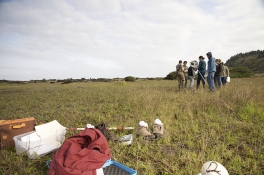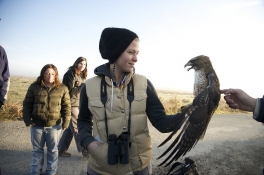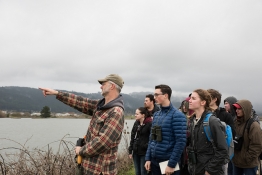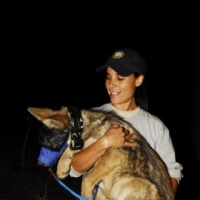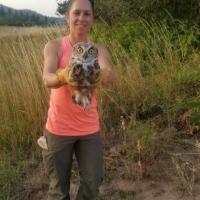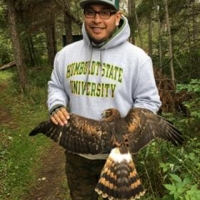Careers & Alumni
Cal Poly Humboldt Wildlife students leave a highly reputable program with the knowledge and skills to pursue several meaningful careers, especially within the discipline.
According to a survey of alumni, 86 percent of our graduates work in a position related to wildlife.
In fact, many are wildlife biologists in the field for state and federal natural resource agencies such as the U.S. Fish and Wildlife Service, California Department of Fish and Wildlife, and the National Park Service. Others work for conservation organizations (like the Wildlife Conservation Society, Ducks Unlimited, or The Nature Conservancy), private ecological consulting firms (such as HT Harvey & Associates), private timber companies (such as the Green Diamond Resource Company), and zoos and wildlife rehabilitation centers.
Whether you’re in the workforce or decide to pursue a higher degree, you’ll be part of a group of Wildlife alumni who stay connected and engaged through the Western Section of the Conservation Unlimited Alumni Association.
Here are a few possible careers:
- Wildlife Biologist
- Wildlife Refuge Manager
- Wildlife Program Specialist
- Wildlife Manager
- Special Agent - Wildlife
- Fish & Game Warden
- Shooting Preserve Manager
- Fish & Wildlife Assistant
- Wildlife Technician
- Animal Biologist
- Animal Handler
- Animal Keeper
- Zoologist
- Fisheries Biologist/Technician
- Research Biologist
- Rangeland Management Spec.
- Range Technician
- Soil Conservationist
- Soil Scientist
- Soil Technician
- Customs Inspector
- Wildlife/Environmental Consultant
- Terrestrial Biologist
- Outdoor Recreation Planner
- Conservation Officer
- Wilderness Ranger
- Park Ranger/Park Tech.
- Naturalist
- Environmental Education Instructor
- Natural Resource Specialist
- Recreation Specialist
- Agriculture Research Worker
- Lab Technician
- Wetlands Biologist
- Wetlands Restoration Specialist

